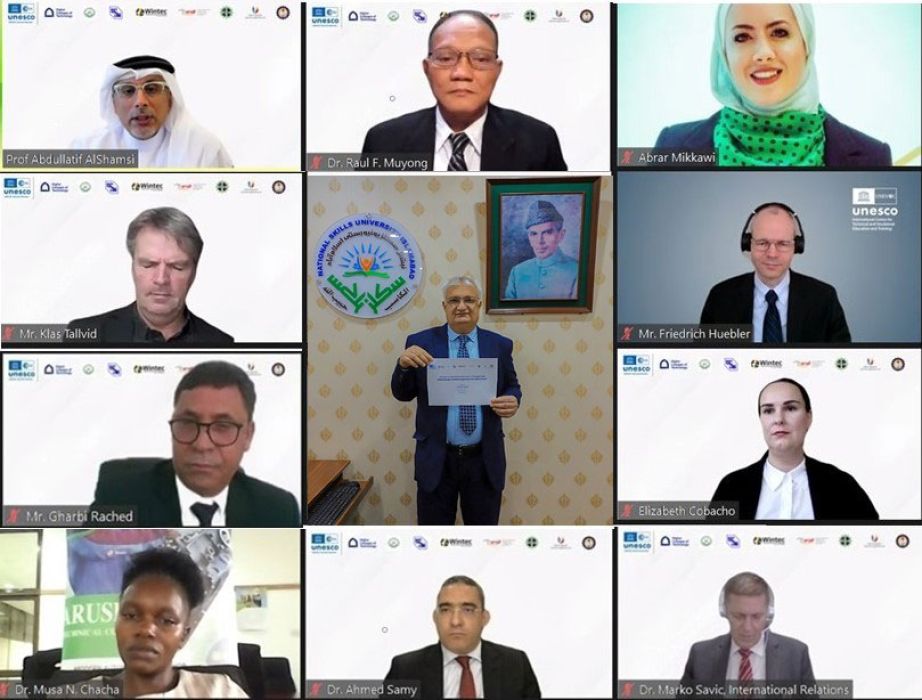43/25 Pre-Launch Ceremony of the Book 'Reputation Management and Crisi Communication' by Imran Ghaznavi
Posted 10 months ago
Reputation Management and Crisis Communication - A Study of the Corporate Sector is an upcoming book authored by Mr. Imran Ghaznavi. Its prelaunch ceremony is scheduled for March 4, 2025 in the Al Mukhtar Auditorium of the National Skills University Islamabad. This book explores skills required to survive in the challenging world of mis and disinformation. For corporates, legacy and reputation is the ultimate for their continued survival. However, reputation is a fragile construct built over decades yet vulnerable to collapse in mere minutes. Scandals, data breaches, consumer backlashes, and executive missteps have all become familiar headlines in an era where a viral tweet can upend a company’s future. In Reputation Management & Crisis Communication: A Study of the Corporate Sector, Imran Ghaznavi offers a gripping and deeply researched exploration of how corporate giants navigate the unpredictable terrain of public perception.
At a time when brand trust is as valuable as financial assets, Ghaznavi delivers a comprehensive and essential guide to understanding the anatomy of corporate reputation—how it is built, how it crumbles, and, most importantly, how it can be salvaged. His approach is analytical and narrative-driven, weaving together a rich tapestry of case studies that dissect some of the most high-profile corporate crises of recent years.
From Apple’s meticulous reputation management to Volkswagen’s costly emissions scandal, from Samsung’s battle to recover from the Galaxy Note 7 disaster to Nestlé’s complex struggles with sustainability and ethics, the book examines what went wrong, how damage was controlled (or worsened), and what leaders can learn from these episodes. Each case is presented as an example and a lesson in crisis preparedness, transparency, and strategic communication.
What makes this book stand apart is its scope. While many books on public relations focus solely on communication tactics, Ghaznavi goes deeper, examining the intersection of reputation management with corporate governance, leadership ethics, and digital transformation. In an age where social media amplifies praise and outrage, companies no longer control the narrative; they merely participate in it. The author demonstrates how proactive strategy, authenticity, and ethical leadership are no longer optional but essential for survival.
The chapter on proactive versus reactive crisis strategies is particularly compelling. It argues that the best reputation management happens through strong leadership, corporate responsibility, and an unwavering commitment to transparency before a crisis emerges. Companies that embrace this philosophy are better equipped to handle storms when they inevitably arrive. Those who fail to do so find themselves scrambling in the court of public opinion, where the verdict is swift and often unforgiving.
The book’s final sections push the conversation toward the future of reputation management, touching on artificial intelligence, cultural sensitivities, and the evolving role of corporate boards in risk mitigation. Including public sector challenges alongside corporate case studies makes this book relevant beyond the boardroom it is as useful for government officials and policymakers as it is for CEOs and communications executives.
However, what is most striking about Ghaznavi’s work is its underlying message: reputation is not a brand asset but the brand itself. No company, no matter how dominant, is immune to crisis. The difference between those who recover and those who collapse lies in preparation, response, and an unflinching commitment to integrity.
According to Prof. Dr. Muhammad Mukhtar, Vice Chancellor of the National Skills University Islamabad, Reputation Management & Crisis Communication is not just a theoretical exploration, but a practical guide that is indispensable for anyone leading an organization in today’s volatile world. It is a roadmap for building institutions that can withstand crisis, not by spinning narratives, but by embodying the values they claim to uphold.
A must-read for executives, policymakers, journalists, and anyone interested in the mechanics of trust in the modern age.
BRIEF ABOUT THE AUTHOR
Imran Ghaznavi is a distinguished professional with over 32 years of experience in the public and private sectors. His areas of expertise include communication, reputation management, and strategic planning. Imran's academic journey is marked by excellence, with postgraduate degrees in Mass Communication and Business Administration, both earned with distinction. He has further solidified his competence with certifications in leadership and senior management from esteemed institutions, including the University of Florida and the University of Texas.





